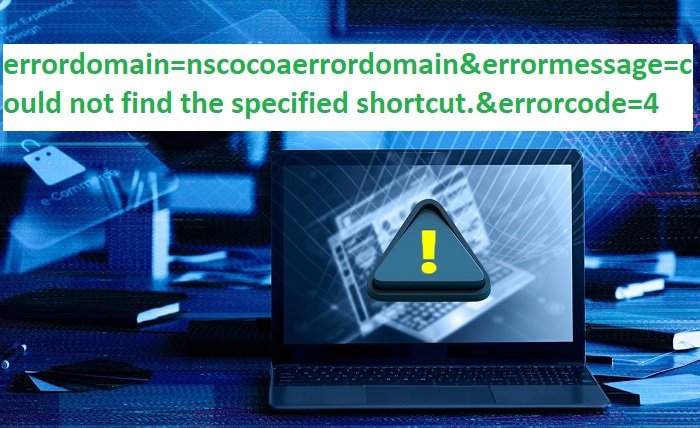Introduction
In the world of programming, encountering errors is a common occurrence. One of the most frequently encountered errors is the parse error. A parse error happens when the code written by the programmer violates the syntax rules of the programming language. This blog post will delve deep into understanding parse errors, their causes, how to solve them, and ways to prevent them. By the end, you’ll have a thorough understanding of parse errors and how to handle them efficiently.
What is a Parse Error?
A parse error, also known as a syntax error, occurs when a program’s source code does not comply with the grammatical rules of the programming language. The parser, which interprets the code, fails to understand it due to these violations, resulting in a parse error. This error is crucial as it prevents the program from running correctly until resolved.
Common Causes of Parse Errors
Several factors can lead to a parse error. One common cause is missing or misplaced punctuation marks like semicolons, parentheses, or brackets. Incorrectly structured statements or commands also frequently result in parse errors. Another common issue is the misuse of reserved keywords or forgetting to declare variables before use.
Identifying Parse Errors
Identifying a parse error can sometimes be straightforward if the development environment highlights the exact location of the error. However, there are instances where the error message might be vague. In such cases, understanding the context and carefully reviewing the code can help pinpoint the cause. Most modern IDEs provide tools and plugins to assist in identifying parse errors efficiently.
Examples of Parse Errors
To better understand parse errors, let’s look at some examples:
- Missing Semicolon: In languages like C++ or JavaScript, forgetting a semicolon at the end of a statement can trigger a parse error.
cpp
int main() {
cout << "Hello, World!"
return 0;
}
- Unmatched Parentheses: An unclosed parenthesis in a function call or condition can cause a parse error.
python
if (a > b:
print("a is greater")
Solving Parse Errors
Solving a parse error involves carefully reading the error message provided by the compiler or interpreter and making the necessary corrections in the code. This might include adding missing punctuation, correcting variable names, or properly structuring the code. Debugging tools and techniques can also be employed to resolve more complex parse errors.
Preventing Parse Errors
Preventing parse errors is possible by following best coding practices. Writing clean, well-documented code and adhering to the syntax rules of the programming language can significantly reduce the occurrence of parse errors. Using code linters and formatters can also help in maintaining consistent coding standards, which in turn helps in avoiding parse errors.
Parse Errors in Different Programming Languages
Different programming languages have different syntax rules, and consequently, parse errors manifest differently across languages. For instance, a parse error in Python due to indentation issues will not occur in C++, where indentation is not syntactically significant. Understanding the specific syntax requirements of the programming language you are using is crucial in preventing and resolving parse errors.
Tools and Resources for Handling Parse Errors
There are numerous tools and resources available to help programmers handle parse errors. Integrated Development Environments (IDEs) like Visual Studio Code, PyCharm, and Eclipse provide built-in syntax checking and error highlighting. Online resources, forums, and documentation can also be invaluable in understanding and resolving parse errors.
Case Study: Resolving a Complex Parse Error
Consider a scenario where a developer is working on a large codebase and encounters a parse error that is not immediately obvious. By using a combination of debugging techniques, code review, and peer assistance, the developer can isolate and resolve the error. This case study will highlight the importance of thorough testing and review processes in maintaining code quality.
The Future of Handling Parse Errors
With advancements in AI and machine learning, the future of handling parse errors looks promising. Intelligent code editors and AI-powered tools can predict and suggest corrections for potential parse errors even before the code is executed. This proactive approach can save time and reduce frustration for developers, leading to more efficient coding practices.
Conclusion
Parse errors are an inevitable part of programming, but with a thorough understanding of their causes and solutions, they can be effectively managed. By adhering to best practices, utilizing available tools, and continuously learning, programmers can minimize the occurrence of parse errors and enhance their coding efficiency. As technology evolves, the tools for detecting and resolving parse errors will continue to improve, making the coding process smoother and more intuitive.
FAQs
1. What is the main cause of a parse error? The main cause of a parse error is a violation of the syntax rules of the programming language, such as missing punctuation or incorrect command structure.
2. How can I quickly identify a parse error in my code? Using an Integrated Development Environment (IDE) with syntax highlighting and error checking can help quickly identify parse errors.
3. Are parse errors language-specific? Yes, parse errors are specific to the syntax rules of the programming language you are using.
4. Can AI help in resolving parse errors? Yes, AI and machine learning tools are increasingly being used to predict and suggest corrections for parse errors, enhancing coding efficiency.
5. What tools can help in preventing parse errors? Code linters, formatters, and IDEs with built-in syntax checking are effective tools in preventing parse errors.





